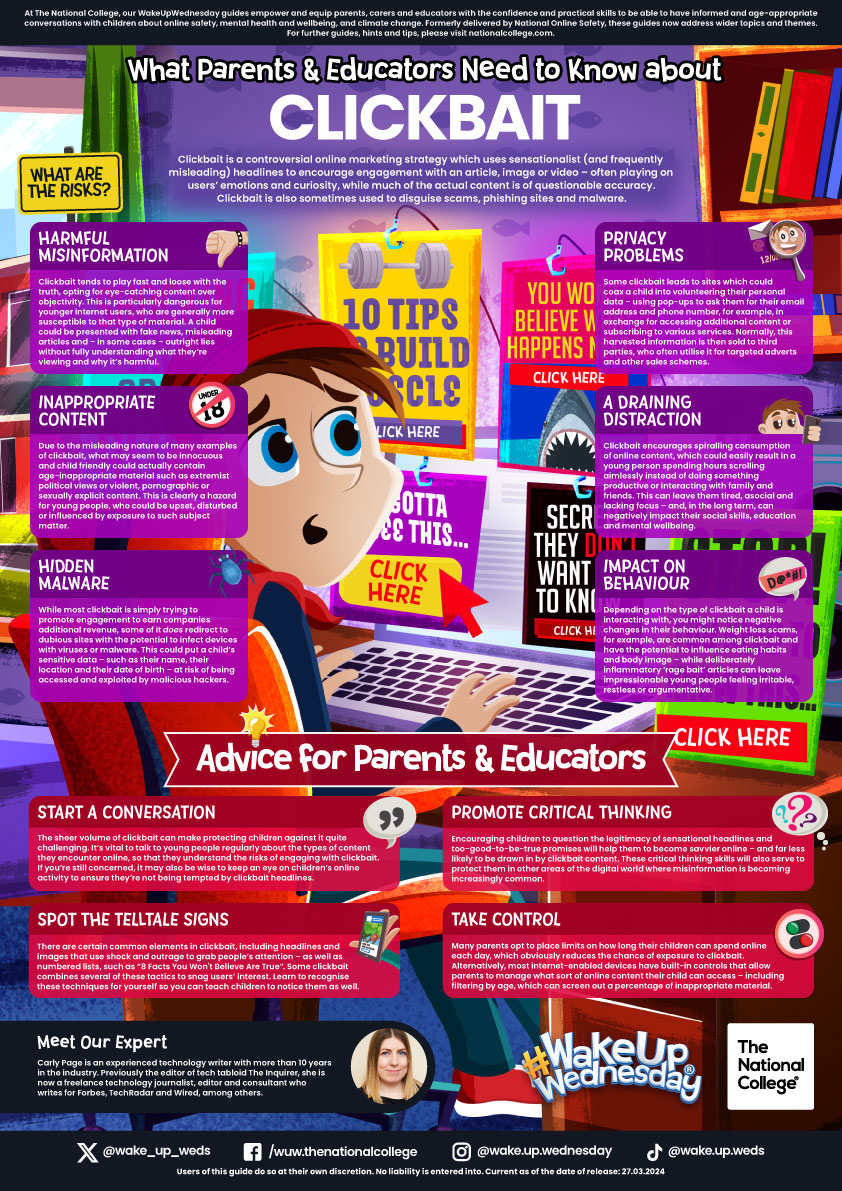
Around one in five headlines online are clickbait. That’s an estimate from experts at Stanford University, who conducted a study into this phenomenon which has gradually extended its reach to almost every corner of the internet – powered by a strategy of snagging users’ attention by any means necessary rather than a legitimate desire to inform or enlighten.
As that statistic indicates, this manipulative marketing strategy is difficult to avoid online. There’s still plenty that can be done though to limit its influence – especially in relation to young people, who are often more susceptible to sensationalist headlines. Today’s #WakeUpWednesday guide details the potential hazards around clickbait and has expert tips for avoiding them.

